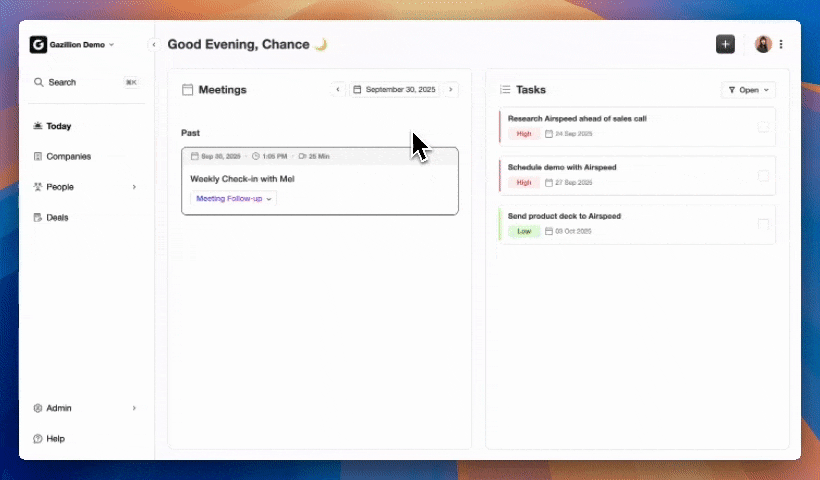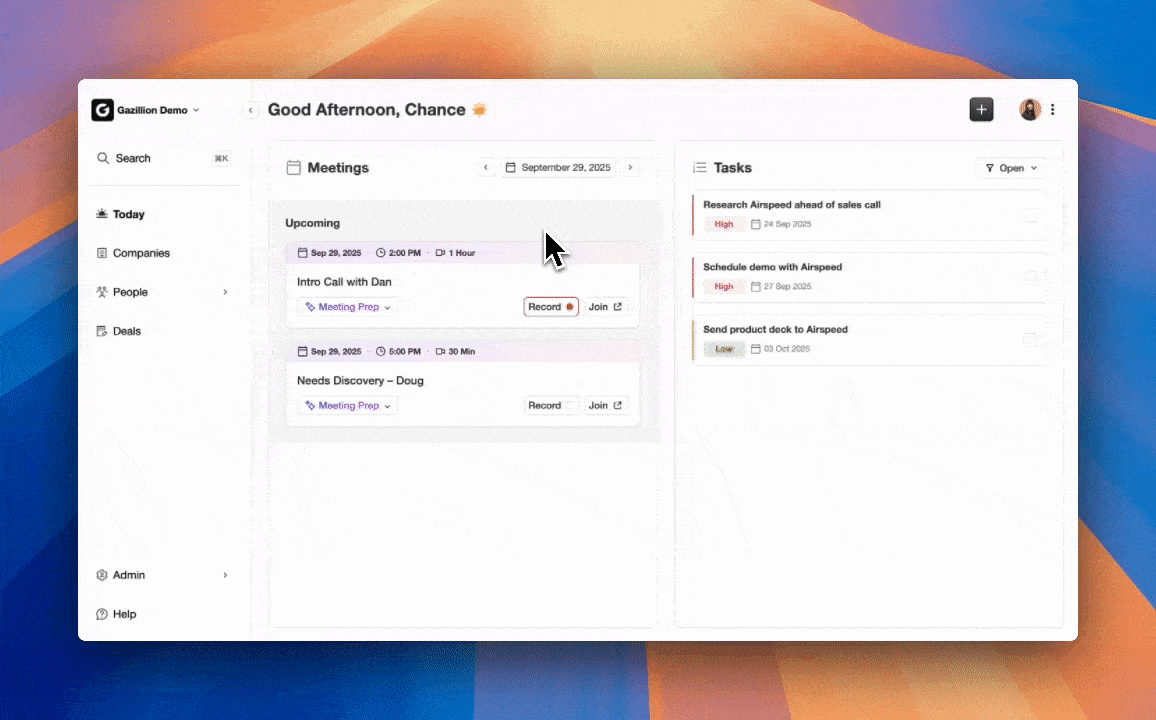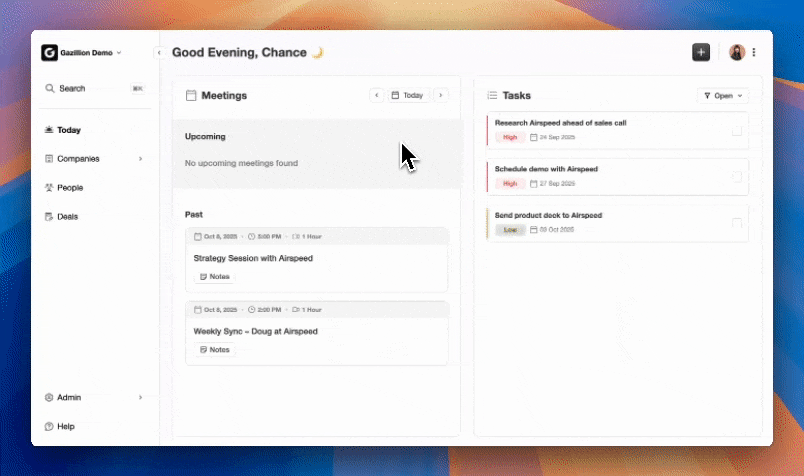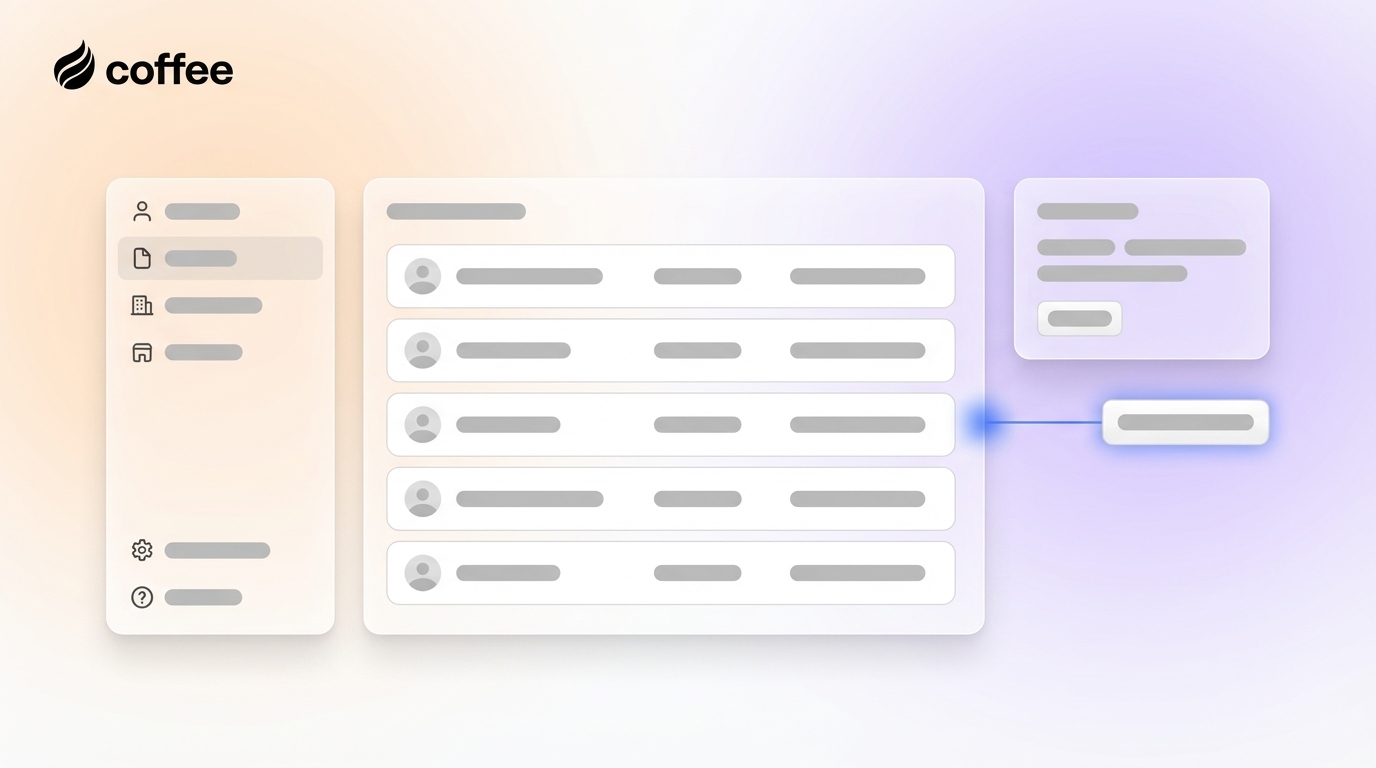Key Takeaways
- Automated CRM data entry in 2026 reduces manual work, improves data accuracy, and supports more reliable forecasting.
- Agent-led AI handles unstructured data from emails, calendars, and meetings, which traditional rule-based automation often misses.
- A phased rollout with clear requirements, success metrics, and change management helps teams adopt automation with less risk.
- Common pitfalls include underestimating integration needs, overlooking data quality, and providing limited training for sales teams.
- Coffee offers an agent-led AI solution that automates CRM data entry and meeting workflows, with flexible plans available at Coffee pricing.
The End of Manual Labor: Why Automated Data Entry is a 2026 Strategic Imperative
Manual data entry in CRMs consumes hours that sales teams could spend selling. Representatives update records, create contacts, and log activities, which often results in incomplete records and uneven CRM adoption. These gaps limit visibility into the pipeline and reduce confidence in revenue forecasts.
Legacy CRMs assume humans will reliably and consistently maintain data. In practice, busy teams skip updates or enter partial information. That behavior creates fragmented customer views and weakens the value of the CRM as a system of record.
Coffee reduces this burden by automatically creating and enriching contacts, companies, and activities. Many teams recover 8 to 12 hours per week per representative, which they can apply to meetings, follow-up, and strategy. The result is more consistent data quality and stronger inputs for forecasting and pipeline reviews.
How Coffee Automates Data Entry: The Agent-Led AI Approach
Coffee uses an agent-led AI approach that treats CRM upkeep as an ongoing, proactive workflow instead of a manual chore. The Coffee Agent focuses on the core problem of CRMs: good insights require good data, and good data rarely appears in the system without help.
The Coffee Agent works in two modes. It operates as a standalone CRM for small and mid-sized businesses and as a companion app for existing Salesforce or HubSpot instances. In both cases, the agent manages the full data lifecycle from capture to analysis so sales teams can act on insights rather than type notes.
Key capabilities for automated data entry
Automatic data capture and enrichment: After connecting to Google Workspace or Microsoft 365, the Coffee Agent scans emails and calendars to identify people and organizations. It adds job titles, funding information, and LinkedIn profiles through licensed data partners and links interactions to the correct records. Activity logging happens automatically, without reps needing to update fields.
AI-powered meeting management: Coffee prepares representatives before meetings with briefings on attendees, roles, and past conversations. The agent can join Zoom, Teams, and Meet calls to record and transcribe discussions. Afterward, it creates summaries, identifies next steps, and drafts follow-up emails for the rep to review and send.

Pipeline intelligence: Reliable, timely data allows Coffee to provide accurate pipeline views. The Pipeline Compare feature shows week-over-week changes, including progressed deals, stalled opportunities, and new pipeline. Pipeline meetings become more focused on strategy and less on reconciling inconsistent numbers.
Teams that want to eliminate manual CRM work and automate data entry can explore plan options at Coffee pricing.
Navigating the Market: Understanding Automated Data Entry Technologies and Landscape
Automated data entry solutions fall into several categories. Traditional CRM automation often depends on structured fields and simple rules, which can miss context from emails, notes, and calls. Robotic process automation mimics human clicks and keystrokes but can become fragile when layouts change.
Agent-led AI, used by Coffee, works with both structured CRM data and unstructured content such as email threads and transcripts. Instead of passively storing data, the agent interprets context, links relationships, and keeps records updated with minimal human input.
Comparison of data entry automation solutions
|
Feature / Solution Type |
Traditional CRM Automation |
Robotic Process Automation |
Coffee’s Agent-led AI |
|
Data Source Compatibility |
Structured data only |
Structured, some semi-structured |
Structured and unstructured |
|
Integration Complexity |
Native, limited scope |
High, scripting required |
Simple, deep integration |
|
Accuracy and Validation |
Human-dependent, basic rules |
Rule-based, brittle |
AI-driven, continuous learning |
|
User Adoption Impact |
Often negative or neutral |
Limited user interaction |
High, frees up representatives |
Architecting Success: Strategic Considerations for Automating Data Entry
Phased implementation roadmap
A phased rollout reduces risk and helps teams see quick wins. Leaders can start with a focused pilot, then extend automation once they confirm value.
Foundation and pilot (months 1 to 3): Define goals and pain points, such as slow contact creation or missing activity logs. Select one team or region, connect email and calendar systems, and capture baseline metrics such as time spent on data entry and CRM completion rates.
Scaled deployment (months 4 to 9): Expand automation to more teams and workflows, including opportunity updates and meeting workflows. Review metrics regularly and refine rules, access controls, and training materials.
Advanced capabilities (months 10 and beyond): Use richer data to improve forecasting, territory planning, and account strategies. Integrate the agent with additional tools in the go-to-market stack where appropriate.
Evaluating solutions for automated data entry
Solution selection should focus on ease of use, depth of CRM integration, scalability, support, and compliance. Coffee aligns with these priorities through SOC 2 Type 2 and GDPR compliance, straightforward authentication for Salesforce and HubSpot, and seat-based pricing that simplifies budgeting.

Change management for successful adoption
Clear communication and training increase adoption. Sales leaders can explain that automation supports, rather than replaces, representatives by shifting effort from routine updates to relationship building, discovery, and deal strategy. Short enablement sessions, office hours, and written playbooks help teams adapt quickly.
Defining success metrics (KPIs)
Success metrics should include both quantitative and qualitative indicators. Quantitative metrics can track time saved per representative, data completeness, error reduction, and forecast accuracy. Qualitative feedback can cover user satisfaction, perceived value, and changes in CRM adoption.
Organizations that want an agent-led data entry solution can review available options and plans at Coffee pricing.
Strategic Pitfalls: Avoiding Common Mistakes When You Automate Data Entry
Underestimating integration complexity
Integration details often determine whether automation succeeds. Teams sometimes overlook calendar permissions, email routing, or field mappings. Coffee reduces this complexity with streamlined authentication for Google Workspace, Microsoft 365, Salesforce, and HubSpot, along with opinionated defaults for data structures.
Neglecting data quality and validation
Automation amplifies both good and bad data. The Coffee Agent validates information against multiple sources before updating CRM records, which helps keep contacts, companies, and activities accurate and consistent.
Poor requirement documentation
Vague requirements increase scope creep and rework. Documenting business needs, critical fields, ownership rules, and approval flows gives vendors and internal teams a clear target.
Lack of communication and training
Quiet rollouts can cause confusion or resistance. Sharing timelines, benefits, and examples of new workflows, then offering hands-on training, encourages adoption and reduces hesitation.

Conclusion: Make 2026 the Year You Automate Data Entry and Empower Your Sales Team
Moving beyond manual CRM data entry has become a practical requirement, not a future wish list. Organizations that rely on human updates alone often face gaps in data, lower productivity, and limited visibility into the pipeline.
Coffee provides an agent-led approach that takes on the repetitive labor of data entry, meeting prep, and follow-up. The result is more complete and current information, which supports better decisions and more effective selling.
Teams that want to reduce CRM busywork and improve sales productivity can review plans and start automating data entry at Coffee pricing.
Frequently Asked Questions (FAQ) about How to Automate Data Entry
How accurate is automated data entry compared to manual methods?
Automated data entry often improves accuracy over manual input by reducing typos and missed updates. Coffee’s agent-led approach uses validation and enrichment to maintain data quality and continues to refine results over time.
Can automated data entry solutions integrate with my existing Salesforce or HubSpot CRM?
Coffee’s Companion App acts as an intelligent layer on top of Salesforce or HubSpot. Through simple authentication, the Coffee Agent syncs data, enriches records, and writes insights back to your existing CRM.
What kind of ROI can we expect from automating data entry in our sales process?
Teams that use Coffee often see 8 to 12 hours saved per representative each week. That time can shift to revenue-generating activities, while better data supports stronger forecasting and pipeline management.
Is automated data entry secure and compliant with data privacy regulations?
Coffee maintains SOC 2 Type 2 and GDPR compliance for secure data handling. Customer data is not used to train public models, which keeps information isolated and protected.
How long does it take to implement automated data entry for our CRM?
Many organizations activate basic Coffee functionality within days. Typical full deployment, including integrations and training, fits within a 1 to 3 month window, with immediate data capture once Google Workspace or Microsoft 365 is connected.
